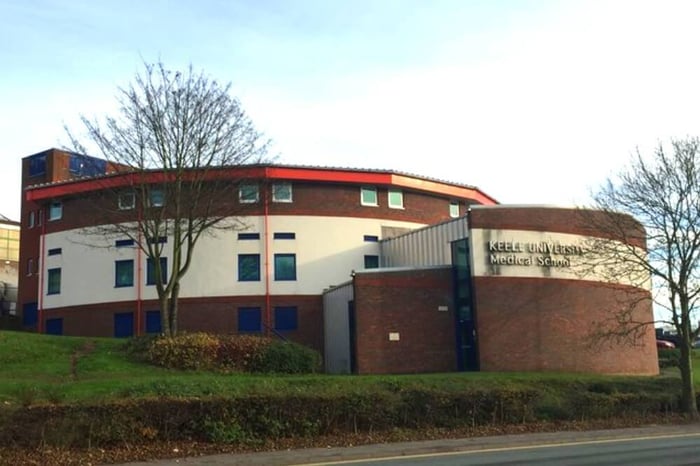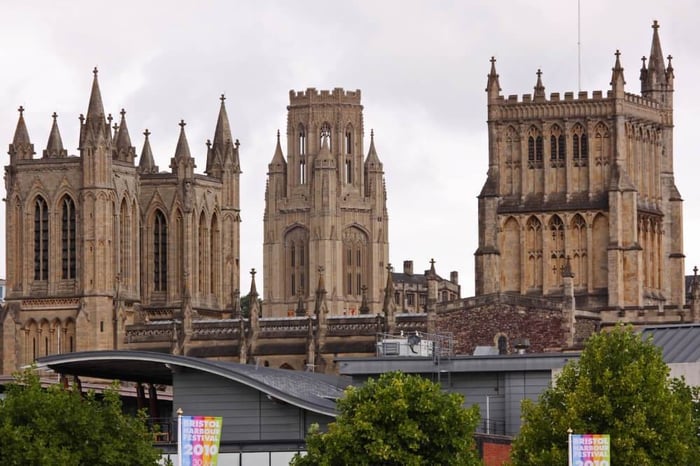
Keele University Medicine Interview Guide
Keele Medical School runs a 5 year MBChB course, with 150 medical students in each year. The first two years are based at the University campus but by the second year there is a lot of clinical experience. It has always ranked highly amongst UK medical schools, placing 6th in the 2018 Guardian League table.

1. About your Keele Medical School interview
Following analysis of the UCAT and the roles and responsibilities form, promising applicants will be invited to interview. Keele Medical School recommends that all applicants familiarise themselves with the NHS Constitution and the General Medical Council’s (GMC’s) Duties of a Doctor. It is evident that they wish for medical students to fully appreciate what is to be expected of them as both a medical student and subsequently as a doctor.
570 applicants are invited to interview and roughly 280 offers made, so your chances are about 2:1.
The interviews are in a multiple mini interview format, with a variety of different stations lasting 5 minutes each. The whole interview is expected to last an hour and fifteen minutes, with eleven stations and one five minute rest. There is also a half hour numeracy skills assessment either before or after your MMI.
The qualities being assessed during the interview are:
- Caring nature - you could demonstrate this by informing your interviewer of any voluntary work you did as part of your work experience. Discuss a time when you have helped someone. Use our STARR format when backing up your point.
- Communication skills - maybe discuss times when you’ve been a team player and had to take into account other people’s opinions. As one of the stations may be a role-play, they could assess how you respond to different situations, such as breaking bad news to a patient.
- Empathy and insight - your interviewer will be looking at how you respond to certain situations.
- Ethical awareness - make sure you are familiar with some common ethical issues, such as euthanasia, abortion and organ donation.
- Responsibility - discuss a time when you have led a team. Tell the interviewer what went well, and what setbacks occurred.
- Motivation and awareness of the challenges of being a doctor - Keele seem to be really big on making you a good clinician. They want you to have very polite bedside manners and ensure you keep your patients in the know. Part of this involves appreciating the negatives of being a doctor. At times, you will find yourself getting upset by a situation.
- Resilience - inform the interviewer of a time when you have coped under pressure or had a setback, and how you overcame this and reached your goal. Medical school can be tough, with difficult decisions and situations where you may not feel like you can save someone’s life. As a doctor, you need to persevere and do your utmost to provide the highest standard of care regardless of what occurs.
- Comprehension -The format varies from a typical 1:1 interview to role-play scenarios. The multiple mini-interview can be quite enjoyable, so go in with an open mind, have fun, and show yourself off.

2. About the course
The course aims to give medical students the necessary knowledge, skills and attitudes to be a doctor. It follows the close requirements set by the GMC. There is a strong emphasis on feedback. Medical students get very early clinical experience, in both primary and secondary care.
Structure
The course is composed of a number of modules, which usually involve a self-contained unit of study. The modules are either compulsory, optional, or elective.
The course is split into phases
- Phase 1 - Overview and early clinical experience
- Year 1 - Health and disease, the body’s defence, emergencies, life-course, brain and mind, pregnancy, lifestyle and a student selected component (SSC).
- Year 2 - Students cover behavioural, social science, pathology, mechanisms of disease, inputs and outputs, movement and trauma, circulation, breath of life, integrated systems and student selected component.
- Phase 2 - Immersion in clinical placements
- Year 3 - integrated units in elderly care, mental health, paediatrics, general practice, medicine, surgery and an SSC.
- Year 4 - medicine, surgery, women’s health, mental health, paediatrics, neurology, musculoskeletal, general practice and an SSC.
- Phase 3 - Extensive student assistantships.
- Preparation for professional practice, GP assistantship, acute, critical care (emergency medicine, intensive care unit and anaesthesia), medicine student assistantship, surgical assistantship, distant elective and preparation for professional practice.
Teaching
Teaching is through clinical experience, integrated communication and clinical skills, practical sessions, dissection, Problem-based Learning (PBL), lectures and seminars.
Anatomy teaching
A new Anatomy Skills Facility was built in 2013, containing the dissecting room, surgical training suite and a wet lab. Anatomy is taught through full body cadaveric dissection, as well as learning from videos and touchscreen computers.
Clinical experience
Clinical experience takes place at a range of hospitals, GP surgeries and community-based organisations across Staffordshire and Shropshire . In the first phase, students undergo half-day placements in primary and secondary care and support groups in the local community. The aim is to ease a student’s transition into the clinical environment. In phase 2, students are encouraged to begin applying their scientific knowledge to clinical practice.
Intercalation and elective opportunities
Intercalation is normally after year two or four, as a BSc degree. However, students can also choose to intercalate in a masters subject at the end of year 4. Students are encouraged to intercalate in a medicine-related subject to acquire a better understanding of biomedical sciences, medical humanities and research methodologies, public scientific papers and present at conferences. The intercalation can be in subjects from biomedical engineering to medical ethics and palliative care.

3. theMSAG tips for the Keele Medicine interview
Practice calculations
Learn about the GMC Duties of a Doctor
Keele School of Medicine is big on developing medical students into successful doctors. Go over the Duties of a Doctor Publication from the General Medical Council (GMC), and think of examples of when you have demonstrated those skills. Also consider the advantages and disadvantages of being a doctor and reflect on what you have learnt from your work experience.
Consider your response to key ethical issues
One of the qualities that Keele's look for at interview is ethical awareness. We would therefore recommend reading around some common ethical issues, such as abortion, euthanasia, organ donation and breaking confidentiality. Make sure you are also familiar with with the 4 ethical pillars and feel comfortable using them as part of your argument.
We hope that you have found these Keele medicine interview tips useful! As always, don't hesitate to contact us at [email protected] if you would like more information.



